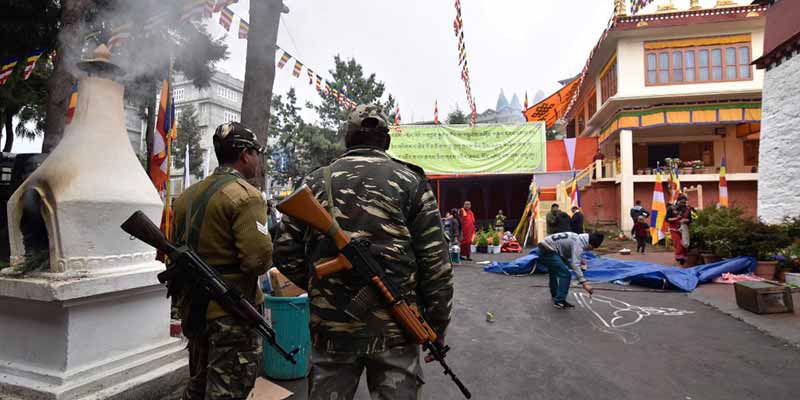- India
- Mar 31
MHA lifts AFSPA from parts of Nagaland, Assam, Manipur
Union Home Minister Amit Shah announced reduction of the disturbed areas imposed under the Armed Forces (Special Powers) Act (AFSPA) in Nagaland, Assam and Manipur from April 1.
However, said the decision does not imply that the AFSPA has been completely withdrawn from the three states but will continue to be in force in some areas.
The home minister said the reduction in areas under AFSPA is the result of the improved security situation and fast-tracked development.
The move came three months after the central government constituted a high-level committee to examine the possibility of lifting the AFSPA in Nagaland where 14 civilians were killed by the Army in December 2021. The killing of 14 civilians rose tension in Nagaland, where people protested for weeks for the withdrawal of the AFSPA.
What is AFSPA?
• Law and order is a State Subject. However, the central government is supplementing efforts of the state governments for curbing the illegal and unlawful activities of militant/insurgent groups of Northeast states through various measures.
• These include deployment of Central Armed Police Forces, reimbursement of security related expenditure (SRE) to the state governments under SRE scheme, central assistance to the state governments for modernisation of state police forces, sanction of India Reserve Battalions, banning the Unlawful Associations operating in NE region under UAPA, declaring specific areas/states as “disturbed areas” for the purpose of AFSPA and issuing notifications for Unified Command Structure.
• The Armed Forces (Special Powers) Act was enacted in 1958 to enable certain special powers to be conferred upon the members of the Armed Forces in the disturbed areas in Assam and Manipur. It was amended and extended to Arunachal Pradesh, Meghalaya, Mizoram, Nagaland and Tripura.
• The AFSPA gives the Armed Forces sweeping powers to search and arrest, and to open fire if they deem it necessary for “the maintenance of public order”.
• AFSPA is imposed in areas where Armed Forces are required to operate in aid of civil authorities.
• For AFSPA to become valid, an area, however, needs to be declared “disturbed” either by the central or the state government under Section 3 of the 1958 Act.
• The disturbed area notification under AFSPA was completely removed from Tripura in 2015 and Meghalaya in 2018.
Withdrawal of AFSPA from parts of northeast states
Assam
The disturbed area notification has been in force in the entire Assam since 1990. Due to the significant improvement in the situation, the AFSPA is being removed with effect from April 1 completely from 23 districts and partially from one district of Assam.
Manipur
The disturbed area declaration has been in force in the entire Manipur (except Imphal municipality area) since 2004. With the government’s decision, 15 police station areas of six districts of Manipur will be excluded from the disturbed area notification with effect from April 1.
Arunachal Pradesh
In 2015, AFSPA was in force in three districts of Arunachal Pradesh, 20 km belt of Arunachal Pradesh along the Assam border and in 16 police station areas in nine other districts of the state. This has been gradually reduced and the disturbed areas notification is currently applicable in only three districts and in two police station areas in one other district of Arunachal Pradesh.
Nagaland
The disturbed area notification has been in force in the whole of Nagaland from 1995. The central government has accepted the recommendation of a committee constituted in this context for withdrawal of AFSPA in a phased manner. The disturbed area notification is being withdrawn from 15 police stations in seven districts in Nagaland with effect from April 1.
Manorama Yearbook app is now available on Google Play Store and iOS App Store

